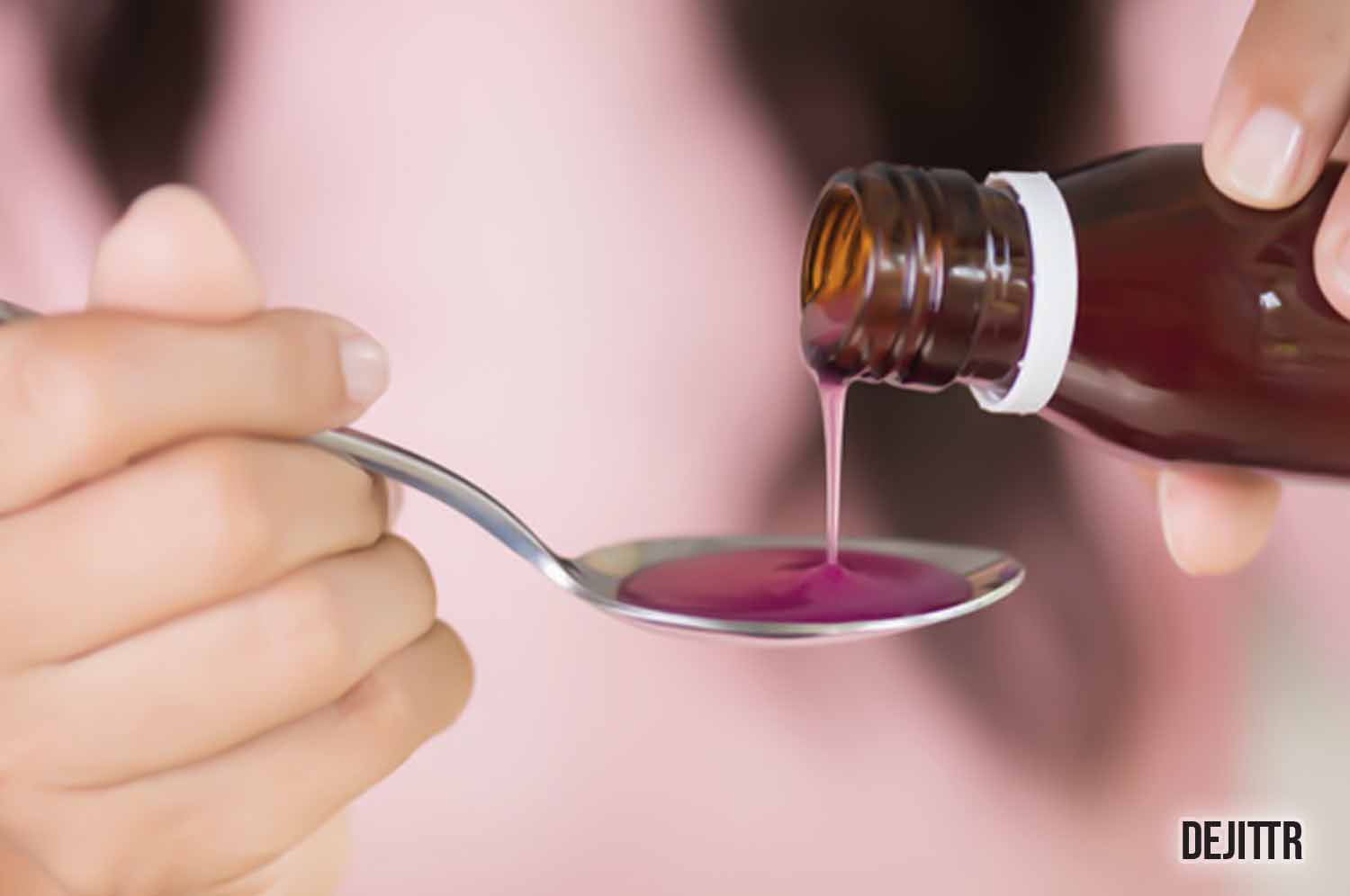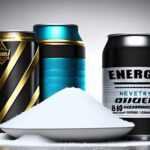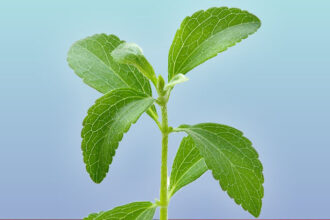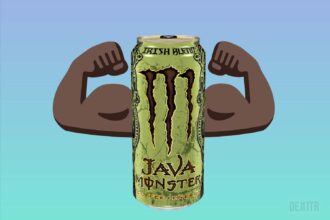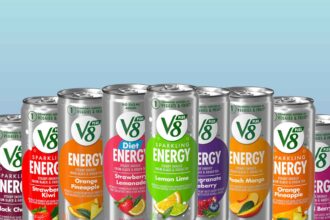Energy drinks have been a popular choice for those in need of a quick boost of energy, but let’s be honest, they don’t always taste great. In fact, they often have a medicinal flavor that can be off-putting to some people. So why do energy drinks taste like medicine? Let’s dive in and find out.
Key Takeaways:
Energy drinks often contain high amounts of caffeine, taurine, and other ingredients that have a bitter taste. To mask this bitterness, manufacturers add a high amount of sugar and artificial sweeteners, which can give the drinks a syrupy, medicinal taste.
Continue reading to delve deeper into the taste of energy drinks and to discover other potential options if you find yourself not particularly fond of energy drinks.
What Affects The Taste Of Energy Drinks? Hint: It’s Ingredients
| Ingredients | Taste and Effect |
| Carbonated Water | Adds fizziness to the drink, making it feel refreshing and bubbly. |
| Taurine | Has a slightly bitter and sour taste, which is often masked by other ingredients in the drink. It is added to energy drinks to boost energy levels and improve mental focus. |
| Caffeine | Has a bitter taste and is responsible for the energy boost people feel after consuming energy drinks. It is also a central nervous system stimulant that can improve alertness and attention. |
| Guarana | Has a slightly sweet and sour taste and is used in energy drinks as a natural source of caffeine. It can also help to improve mental and physical performance. |
| Citric Acid | Has a sour taste and is used in energy drinks to add a tangy flavor. It also helps to enhance the flavor of other ingredients in the drink. |
| Sucralose | A sugar substitute that is used in energy drinks to add sweetness without adding calories. It has a similar taste to sugar but is much sweeter. |
| B-Vitamins | Can have a slightly bitter taste but are often added to energy drinks to help boost energy levels and improve mental performance. They are also important for overall health and wellbeing. |
| Sugar | Adds sweetness to the drink and is often the main source of calories in energy drinks. It can also contribute to the jittery feeling some people experience after consuming energy drinks. |
Overall, the taste of energy drinks is a combination of all the ingredients present in it, with some drinks being sweeter, more bitter, or more tangy than others. The amount of each ingredient used can also affect the taste.
Why Do Energy Drinks Taste Like Medicine?
Energy drinks contain a variety of ingredients that can give them a medicinal taste.
One of the key ingredients is caffeine, which has a bitter taste. To counteract the bitterness, manufacturers add sweeteners like high fructose corn syrup or artificial sweeteners, which can create a syrupy, medicinal flavor.
Additionally, energy drinks often contain vitamins, minerals, and herbal extracts that are not commonly found in other beverages, and these can contribute to the medicinal taste. Some energy drinks also contain taurine, an amino acid that has a slightly bitter, medicinal taste.
Finally, many energy drinks are carbonated, and the combination of carbonation, sweeteners, and other ingredients can create a flavor that is reminiscent of medicine.
What Are Energy Drinks Supposed To Taste Like?
They are typically carbonated and contain high levels of caffeine and sugar, along with other added substances like B vitamins and herbs. Energy drinks come in a variety of flavors, but in general, their taste can be described as sweet, tangy, or sour.
Here are the most common energy drinks and their respective tastes:
| Energy Drinks | Taste |
| Monster Energy | Strong sweet taste with a tangy touch |
| Full Throttle | Herbal tea with easy drinkability |
| Rockstar | Liquid, milky bubble gum flavor that is very thick |
| Red Bull | Sweet, tangy with a hint of bitterness |
It is important to note that taste is subjective and can vary from person to person. In addition, the taste of energy drinks may be influenced by the ingredients used, such as the amount of sugar and caffeine, and other flavorings.
What If You Don’t Like Energy Drink Taste? – Possible Alternatives!
| Energy Drink Alternatives | Taste Description |
| Green Tea | Earthy, slightly bitter, and grassy with a subtle sweetness |
| Ginseng | Bitter, slightly earthy, and slightly sweet with a slightly spicy finish |
| Kombucha | Tangy, slightly sour, and slightly sweet with a slightly effervescent finish |
| Sparkling Water | Refreshing, crisp, and clean with no added flavors |
| Matcha Green Tea | Earthy, slightly bitter, and slightly sweet with a vibrant green color and a smooth texture |
| Coconut water | Mildly sweet with a nutty and salty touch |
As much as we love to indulge in energy drinks, we all know they’re not the healthiest option out there. Filled with sugar, caffeine, and other artificial ingredients, traditional energy drinks can have negative effects on our bodies. But fear not! There are alternatives to traditional energy drinks that can give you the same energizing boost, without the negative side effects and unpleasant medicinal taste.
First up, we have natural energy drinks. These drinks are made with all-natural ingredients, like green tea or ginseng, that can give you a natural boost of energy. You can find them in most health food stores or make them at home with your favorite ingredients.
If you’re not into natural energy drinks, there are other beverages that can provide energy and focus. For example, kombucha is a fermented tea that can give you a natural energy boost, while also providing probiotics for gut health.
Another option is sparkling water with a splash of fruit juice. The carbonation can give you a refreshing burst of energy, while the fruit juice provides natural sugars for a quick pick-me-up.
Lastly, we have healthier alternatives to energy drinks. These are drinks that can provide energy and focus, while also being good for your body.
One example is matcha green tea. Matcha contains caffeine and L-Theanine, which can give you a natural energy boost while also promoting relaxation and reducing stress. Another example is coconut water. Coconut water contains natural electrolytes, which can help replenish your body and provide energy
In a nutshell, energy drinks often taste like medicine due to the specific flavor profiles and ingredients used by energy drink companies. However, there are alternatives available for those who don’t enjoy the taste.
As always, it’s important to prioritize your health and well-being when consuming any beverage. It is good to consume energy drinks in moderation and be aware of the potential side effects associated with their excessive consumption.


